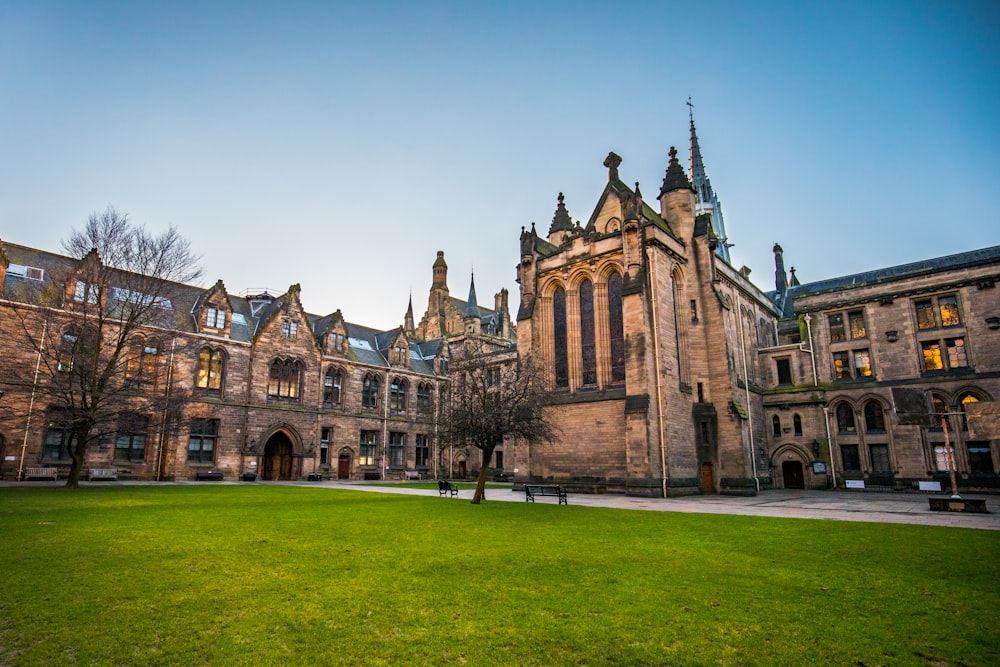Wha't the Point of College?
Photo Credit: Zhanhui Li
By Cale Gressman
Well this is a hot topic these days, isn’t it? Depending on who you ask higher education can either be the giver of life or the kiss of death. Some say that absolutely everyone who can ought to go (and some even argue that we should pay for it), while others strenuously try to push young people (as if I’m not one) towards other directions. Now I am a recent graduate of said higher ed, I have a few thoughts on what the purpose of such an institution is.
So there are a few different ideas of what colleges/universities are for. The first is that colleges are the shapers of civilization and society. They seek out the truth. Unravel mysteries. And make good citizens. That’s at least the idea. This is why ostensibly they have so many required credits in everything from STEM to Social Studies to Humanities. They want to give students the broadest, most well-rounded education they can.
The problem is that we live in a postmodern world where all ideas and claims are up to speculation and debate. What does it mean to create better citizens? That debate itself would spark off riots. In a non-axiomatic world, the idea that you can have THE definition of a good anything is impossible.
Another problem, in regard to my education at least, is that the coverage of the subject is spotty at best. In my senior year of college, I had a conversation with my philosophy professor about how I was struggling to keep up with certain conversations in a class due to the fact that I hadn’t heard of many of the philosophers mentioned. He explained that this was a common problem.
The philosophy program at the University of North Dakota was underfunded and understaffed. Because of this, the prerequisite courses that would have gone through the history of philosophy were no longer offered. This personal sob story is just to point out a problem in the idea that colleges are supposed to make better people; that is that you cannot do it unless you offer a complete education.
Another claim about the purposes of higher ed is that it is merely a fancy trade school. This makes a good deal of sense. If you go to law school or medical, or you’re in flight school, or accounting school, you as a student are taught how to be those things plain and simple.
You are not taught to try nifty new theories when doing someone's taxes, you are taught how to do someone's taxes. You are not taught to philosophize about flying a plane, you are taught to fly a plane. The philosophy and ethics classes mandated by medical schools are, to one extent or another, to teach students to think correctly about how to be a doctor. There is indeed a philosophy of law (I have a degree in pre-law philosophy) but when you are in law school, you are trained to be a lawyer. Period. These schools are all big fancy trade schools. They are out to make sure their students get jobs.
The problem with this view of the university system is that with the exception of programs mentioned above, universities don’t seem to provide the bang for their buck; literally. Tuition rates have gone up and up, and the jobs that students are going to occupy don’t match up to the degree they took. In fact, as my friends and I have bemoaned. College doesn’t train you for the job market. I have one friend who is trained as an economist, but when he got his current job, he had to learn a completely different system than the one he was trained on. Another friend got a degree in accounting but had to effectively retrain as an accountant when he got his first job. Most of the skills you need in the fields you are in are taught on the job.
Now my personal opinion on the true purpose of college is that it is an institution designed for mass sorting. What I mean by this is that it sorts students by intelligence and conscientiousness. What do I mean by this? The idea is, if you get good grades in college, then you are probably intelligent and conscientious. The fact that you could learn the material and sit through a class (and presumably did that all through K-12) means that you’ll be able to sit and do your job properly. Those who cannot do this will be forced out.
Related to this is that colleges train you how to act in a business environment. That is how do you work in groups? How to get projects done on time. What can and cannot be said in a public setting. All these “soft skills” are just as important as intelligence in the workplace. If you cannot play nice with the other kids you become a pariah.
Now, this is the ideal. I fear that colleges don’t recognize that this is their effective role in society. I fear they believe that they are the shapers of society. Because of this, as well as market problems, means that colleges seem to be getting easier in a very real sense. The most common grade to be given out today is an A (at around 55%). While I was in, I had classes that were not only easy A’s, but that they handed out the A’s. This grade inflation is going to make many employers question the utility of recruiting from colleges. Thus, undermining the entire system.
As of right now, rates of college attendance, especially by men, is down. However, the rules of the game still necessitate a college degree if you want to climb the socioeconomic ladder. Much of this relies on the prestige of a degree, but a simple economic rule is the more you have of something the less it is worth. It also does not bode well that many colleges, particularly elite ones, are dropping their standardized testing requirements. But that is a conversation for another day.


Comments
Post a Comment